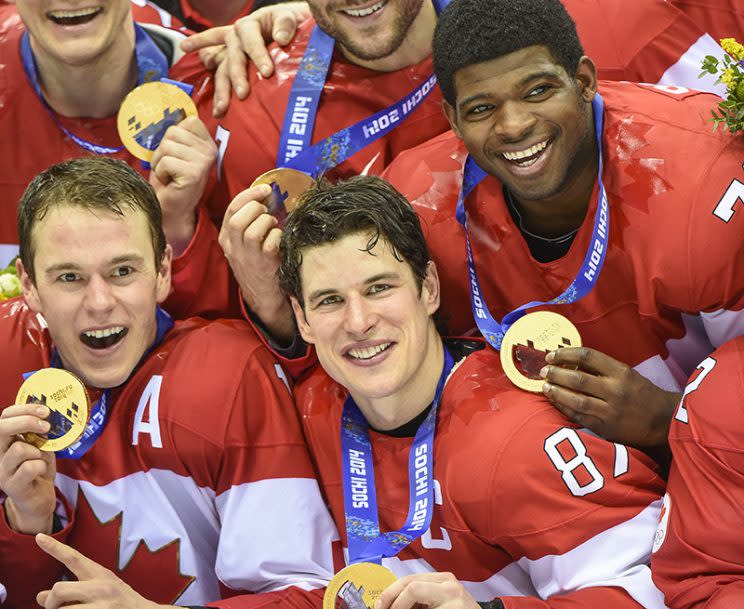NHL ‘negative’ on 2018 Winter Olympics, addresses Ovechkin threat

TORONTO – As the 2016 World Cup of Hockey enters its final games, attention turns to that other big hockey tournament coming up in PyeongChang, South Korea.
But the chances that the NHL is going to bring its players to the 2018 Winter Olympics are dwindling by the day, according to the League.
“I think time is very short to make a decision, and I’m not sure there’s been a lot of progress made in the past six months, and I’m not sure there’s any prospect for progress to be made,” said NHL deputy commissioner Bill Daly. “So on the basis of that, I’d say that I’m more negative today than I was two weeks ago.”
The NHL received an update from the International Ice Hockey Federation during the World Cup, and the IIHF said there’s still much work to be done in securing the financial backing the NHL is seeking from the International Olympic Committee.
Among the issues: Travel costs, player insurance costs, better accommodations for the athletes and their guests, as well as considerations about “the physical layout of the Olympic Games, and whether the location of the Olympic Games makes that run smoothly,” said Daly.
While they’ve acknowledged that the IOC must do more to cover those costs, the NHL Players Association has been adamant about its players continuing to participate in the Olympics. Alex Ovechkin of the Washington Capitals has even threatened on multiple occasions that he would leave his team to play for Russia in the Olympics if the NHL doesn’t continue to send its players.
Daly said that while Ovechkin is one of the NHL’s biggest stars, it would be up to the Capitals to decide whether or not he’d be allowed to leave for the Olympics.
“I don’t have a league reaction to that. If that became a prevailing view of a group of players, or a significant group of players, I might have a different view. But at this point it’s a single superstar player who will have a contract with one of clubs, and the club will handle that within its own discretion,” he said.
Of course, it’s the teams and their owners that have the most concerns about Olympic participation. Not only because of the risk of injury, but because the break in the season is seen as momentum-killing from a marketing standpoint and with no financial benefit to the teams.
“Olympic participation hasn’t done a lot for the National Hockey League, and for the clubs. It’s obviously a big global stage, and probably the top global stage. But it hasn’t translated to our business,” said Daly.
This is partially why the World Cup of Hockey was revived, to create a tournament before the season that could generate revenue that the Olympics don’t. But after over a decade of dormancy, and because of the enormous cost of the event, the World Cup isn’t producing a windfall of profits yet.
“The financial opportunity has been greater here than it has been for our owners at the Olympics, historically. Having said that, in the entire scheme of things, it’s a relatively minor financial opportunity,” said Daly.
So what would happen if the IOC suddenly decided to cover the costs? “It changes the current state of affairs, but it might not change the result,” said Daly.
But in the end, all of this could mean that the NHL won’t go to South Korea but would continue Olympic participation in more fertile (or potentially fertile) hockey markets – like Beijing, China, in 2022.
“It’s possible that you don’t go to one Olympics, but you go to the other. I don’t think anybody has ruled that out as a possibility,” said Daly.
—
Greg Wyshynski is a writer for Yahoo Sports. Contact him at puckdaddyblog@yahoo.com or find him on Twitter. His book, TAKE YOUR EYE OFF THE PUCK, is available on Amazon and wherever books are sold.
MORE FROM YAHOO SPORTS

 Yahoo Sports
Yahoo Sports 

